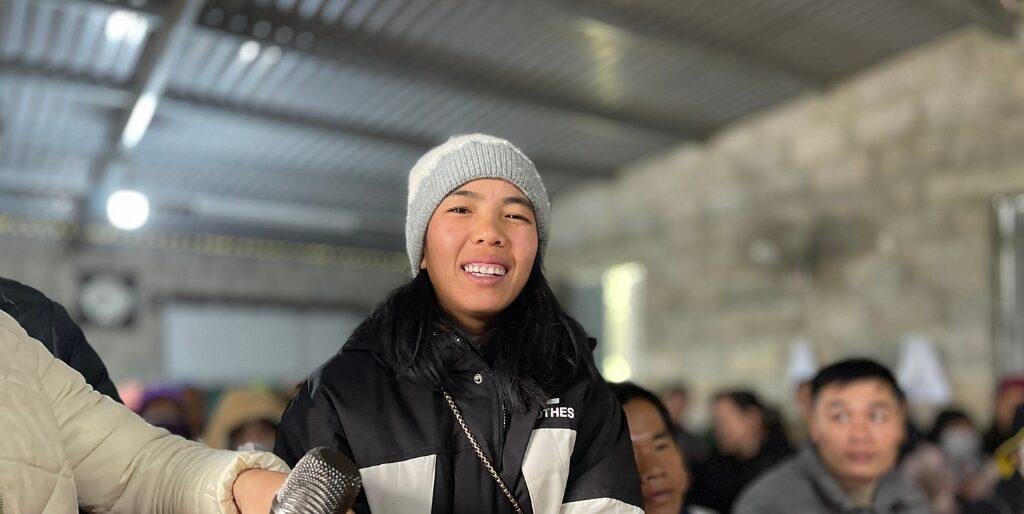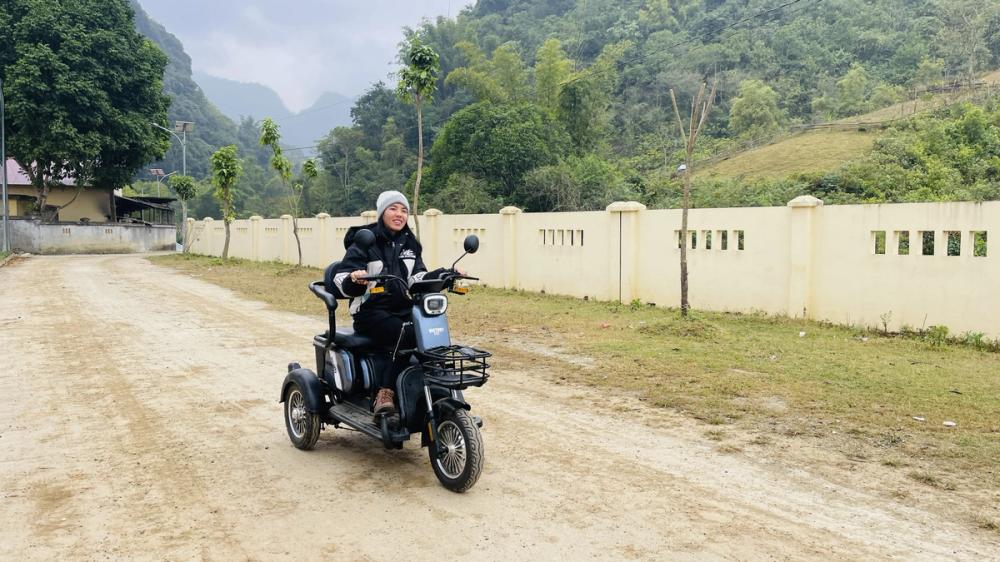Female entrepreneurs rise up!
7 March 2024
•By efreedman


When Ngoc (pictured below) was two-years-old, she got sick with a high fever that led to full-body seizures. Life changed in an instant; she was diagnosed with a severe mental and neurological disability. Suddenly, daily tasks, like putting on shoes and brushing teeth, required huge amounts of effort. Ngoc spoke hesitantly and unclearly, often needing to repeat words to make herself understood. She could not hold things firmly as her hands trembled frequently.
Ngoc spent most of her time at home in Cao Bang province, Vietnam, two hours from the nearest town and only reached by foot. Despite attending the local school, Ngoc struggled to maintain good grades due to a lack of specialised teacher support. Her mother, Ri, always by her side, wasn't sure what the future held for her daughter.
Inclusivity has the power to remove barriers and transform lives
When Ngoc was only six-years-old, her father passed away, leaving her mother and older brother, Vuong, to support the family. Ngoc remembers feeling lonely as she didn't have many friends and rarely went outside. She understood how hard it was for her mother to raise two children, as she watched her work in the fields, selling vegetables to make ends meet.
But all that changed five years ago, when Ngoc, then 22, attended a monthly Self-Help Group of People with Disability meeting in Quang Hoa district, accompanied by her mother. The meeting, supported by ChildFund helps young people with disabilities and their carers as they gain the necessary skills and resources to become active members of the community. They also help establish a good support network.
During these meetings, Ngoc was able to share her experiences and difficulties with people who faced similar challenges. Meanwhile, Ri attended training sessions focused on disability rights, which helped her understand her daughter's needs better and improve her caregiving skills.
Ri soon noticed a positive change in her once-shy daughter. She observed that the more Ngoc engaged in activities and interacted with others, the more confident and bolder she became in expressing her opinions and tackling various tasks. Her communication and organisational skills had improved. With her newfound confidence, Ngoc took a more proactive approach to her life, determined not to be defined by her disabilities or circumstances. This included taking greater control of her financial wellbeing.
Empowered to dream big and think outside the box
Ngoc’s disability meant she faced barriers to employment opportunities after she left school. She was often judged as unfit for work, particularly without her mother’s support. However, thanks to ChildFund's income-generating activities for people with disabilities in her community, Ngoc was taught how to raise and sell chickens (she bought 50, excited by the prospect of earning her own money).
This income-generating model was created to assist rural communities in using available resources and maximising the potential of their land. This is particularly significant for rural women, who make up a crucial workforce in agricultural production, accounting for 67.7 per cent of the workforce in Vietnam.
Although only half of the chickens were sold and consumed, Ngoc says she valued the opportunity to learn and share with others like her and was inspired to start her own entrepreneurial journey. She had discovered a natural talent and passion for business (after the chickens she saw a gap in the market and convinced her mother to let her look after one of the family’s buffalos and quickly turned a profit.) But her ambitions didn’t stop there.
Ngoc was determined to live independently as possible. Being a farmer living in a rural area, she knew it was necessary to have her own vehicle. Ngoc had always dreamt of owning a three-wheeled electric scooter, which would not only help her sell coffee by herself (the next business venture) but also provide her with the freedom to travel into the commune centre independently. Ngoc's family was worried about her safety and didn't want her to go outside alone. Despite this, she used the money she had saved from selling and raising animals to buy a scooter. She was determined to succeed and told her mother, "I have to try harder. If I fail, I need to try again." Ngoc practiced riding the scooter on her own and, after a few days, surprised her family and neighbours by successfully controlling the vehicle.


Try and try again!
Last year, Ngoc bought 100 chickens and 20 ducks to raise and sell before Tet (Lunar New Year). Today, she has successfully sold almost all her chickens and already has new business ventures lined up.
Ngoc says her life has improved significantly over the years, “We have another worker to help with farming and household chores such as washing dishes and doing laundry. I raised 10 more pigs, chickens, and ducks with my mum. Recently, we also began to grow sugarcane to sell to Phuc Hoa sugar factory. Our living conditions have much improved."
Ngoc hopes to help other people with disabilities in her community. With her scooter, she can easily travel and participate in Self-Help Group of People with Disability activities, which includes training sessions on organising meetings and planning. She is now one of four disability volunteer representatives in Tu Do commune. Her duties include communicating and advocating for disability rights, informing households with disabled members about related policies, laws, and rights, and promoting project activities that they can participate in.
Ri says she is proud to see how much her daughter has grown and financial independence, which she hopes more people with disabilities will be able to achieve.
“Ngoc is now eager to do many things, such as raising rabbits, growing plants, and selling teddy bears and coffee. I hope other people with disability like Ngoc can have jobs to support themselves." The My Right to Education project is supported by the Australian Government through the Department of Foreign Affairs and Trade, and implemented in Bac Kạn Province and Cao Bang Province by ChildFund Vietnam and local partners.
Find out more about our work in Vietnam.
